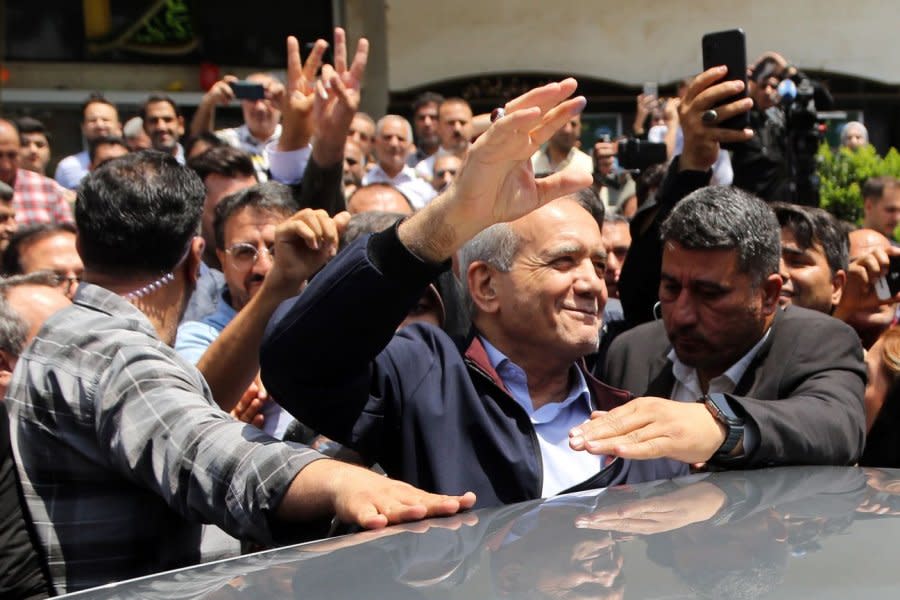Iranians vote to choose a new president but many expected to boycott poll

June 28 (UPI) -- Iranians were headed to the polls Friday in a snap presidential elections to replace the late President Ebrahim Raisi who was killed in a helicopter crash last month.
An estimated 61 million registered voters will choose among four candidates handpicked by an unelected panel of clerics. Three candidates are drawn from the Islamic Republic's conservative-hardline factions who are up against the lone reformist candidate, lawmaker Massoud Pezeshkian.
Polling indicates Pezeshkian is leading Saeed Jalili, a hardline former nuclear negotiator, and Parliament Speaker Mohammad Baqer Qalibaf, a former commander of Iran's Islamic Revolutionary Guard Corps., designated a terrorist organization by North America and some European and Middle Eastern nations.
Domestic government-backed polls give Jalili a clear lead with Pezeshkian and Qalibaf level-pegging for second place.
All four, however, back the country's Supreme Leader, Ali Khamenei.
He took to social media late Thursday to urge people to come out to vote despite a looming boycott amid discontent over the failing economy and a crackdown on political and social freedoms, led by women angry about restrictions imposed on them by Raisi's hardline regime that any amount of voting in tightly controlled elections is unlikely to change.
"Being strong isn't just about having various types of missiles, which thank God we do; another dimension of strength is voter turnout. So, anyone who believes in supporting the Islamic Republic must vote," he said in a post on X.
"The word 'Republic' in Islamic Republic indicates the presence of the people is a part of the foundation of this system. Therefore, the continuation, strength, dignity, and honor of the Islamic Republic in the world depends on the participation of the people."
Turnout has been falling since mass street protests in 2018 and people began staying away from the polls as a form of protest as disillusionment has grown. Only 48% of voters participated in the 2021 election that brought Raisi into office, falling to a record low of 41% in elections for the legislature in March and May.
Opposition to more than four decades of the Islamic system of government and the regime exploded with the Sept. 2022 killing of 22-year-old ethnic Kurd, Mahsa Amini, while detained by the morality police for not wearing a hijab properly, which is a mandatory dress code for women out in public.
Her death sparked nationwide protests in which more than 550 people died at the hands of security forces, according to a U.N. fact-finding mission.
Pezeshkian, 69, a surrogate of former president Hassan Rouhani, a moderate noted for his more conciliatory engagement with the West and agreeing to curtail Iran's nuclear program in exchange for oil exports, has said the morality police are the ones who are "immoral."
"If wearing certain clothes is a sin, the behavior towards women and girls is 100 times a greater sin. Nowhere in religion is there any permission to confront someone because of their clothing."
He has also promised to try to tackle the financial hardship suffered by ordinary Iranians by improving relations with the West -- including resuscitating the Iran Nuclear Agreement jettisoned by President Trump in 2018 -- to convince it to relax international sanctions strangling the economy.
Raisi, 63, died May 19 returning from a trip to the Iranian border with Azerbaijan to inaugurate a new dam on the Aras River with Azerbaijan President Ilham Aliyev after the helicopter he was on went down in dense fog in a mountainous region in the northeast of the country, killing all nine passengers and crew.


